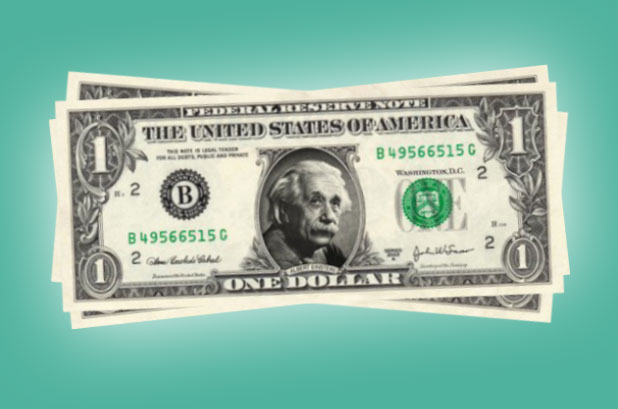
The vast majority of people don’t understand compound interest, a point not lost on the legendary physicist Albert Einstein.
Privy to the forces that govern our physical existence, Einstein’s theories continue to be proven decades after this death. Yet even he marveled at this simple financial concept.
Einstein is reputed to have said: “Compound interest is the eighth wonder of the world. He who understands it, earns it…he who doesn’t…pays it.”
So what force did Einstein miss? The power of paying yourself first.
First let’s talk compounding. We are all familiar with linear figures, such as a paycheck. Unless you get a raise your pay is going to be the same amount, week in and week out.
Invested money, however, grows geometrically. Over a decade your money doesn’t double from $100 to $200 by adding $10 each year. A growing base earning a market rate of return means your $100 instead becomes $350.
Add 10 more years and you’re up to $850. Scale that up to $1,000 or $100,000 and pretty soon you’re talking about real money.
Buffett’s view
That’s compounding growth and it’s truly powerful. Warren Buffett, the iconic long-term investor, is worth tens of billions of dollars today, in his 80s.
Yet he was merely a multi-millionaire for many years before that. As Buffett himself puts it, “My wealth has come from a combination of living in America, some lucky genes, and compound interest.”
So how powerful is paying yourself first? Extremely powerful, because it eliminates human frailty. Compound interest may be the eighth wonder of the world. “Out of sight, out of mind” automated saving is probably the ninth.
Too many people try to save in a way that’s exactly backward. They spend first and then attempt to save up toward the end of the year.
The far more powerful way to save and invest is to set aside a percentage of your income every pay period — be it 10%, 15% or more — and to invest it automatically.
Inevitably rich
Most of the folks who are “401(k) millionaires” today got there not by betting it all on some hot tech stock or getting lucky with an IPO. Rather, they socked away a reasonable percentage of their pay into a broad array of stocks and keep doing it for decades.
If you have a 401(k) plan at work, this is an easy move. Just tell your human resources department how much to deduct from each check. Then pick an appropriate index fund.
Your income tax bill should go down immediately. Your company probably offers a nice matching amount, too. Saving even more money to invest might not cost you a dime extra.
If you don’t have a 401(k), ask your payroll department to issue two paychecks, one to your bank to pay bills and one sent directly to your IRA. Make it automatic deposit so you don’t get a chance to change your mind and spend it. And don’t forget to invest it!
Saving and investing is hardly advanced physics, but Einstein would have appreciated the beautiful simplicity of automated saving and investing.
As he famously said: “Everything should be made as simple as possible, but not simpler.”




